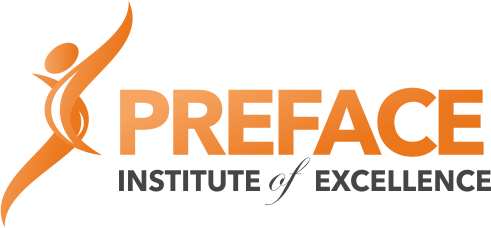INTRODUCTION
In the realm of education, the boarding school experience stands as a distinctive pathway towards academic and personal growth. Often adorned with picturesque landscapes and historic buildings, these institutions offer more than just a scenic backdrop for learning. Beyond the classroom, boarding schools provide a holistic environment that nurtures independence, fosters resilience, and cultivates the skills necessary for success in college and beyond.
Embracing Independence
One of the fundamental aspects of boarding school life is the cultivation of independence. For many students, this marks their first foray into living away from home, which presents opportunities for personal growth and self-reliance. From managing their schedules to organizing their living spaces, students learn to take ownership of their responsibilities in a supportive environment.
This newfound independence extends beyond daily routines and permeates academic endeavors. Boarding schools often offer a rigorous curriculum that challenges students to think critically, engage deeply with subjects, and explore their interests. With access to resources and supportive faculty, students develop the autonomy to pursue their academic passions and navigate the complexities of higher education.
Building Resilience
The boarding school experience instills resilience in students, equipping them with the tools to navigate life’s challenges with grace and perseverance. Living away from home and forming new connections fosters adaptability and resilience in the face of change. Whether it’s overcoming homesickness, managing academic pressure, or resolving conflicts with peers, students learn to navigate adversity with resilience and determination.
Moreover, the structured yet supportive environment of boarding schools encourages students to embrace failure as a stepping stone to success. By fostering a growth mindset, students learn to view setbacks as opportunities for learning and growth rather than insurmountable obstacles. This resilience serves as a valuable asset in college, where students encounter new academic and social challenges on a daily basis.
Cultivating Leadership and Collaboration
Boarding schools provide a fertile ground for the cultivation of leadership skills and collaborative abilities. Through a variety of extracurricular activities, students have the opportunity to take on leadership roles, whether it’s leading a student club, organizing a community service project, or representing their peers in student government. These experiences not only develop leadership skills but also foster teamwork, communication, and interpersonal skills.
Furthermore, the diverse and inclusive community of boarding schools exposes students to a wide range of perspectives and backgrounds, fostering empathy and cultural competence. Learning to work alongside peers from different cultures and backgrounds prepares students to thrive in a globalized world and collaborate effectively in diverse academic and professional settings.
Academic Excellence and College Readiness
Boarding schools are renowned for their commitment to academic excellence and college preparation. With small class sizes, dedicated faculty, and state-of-the-art facilities, these institutions provide an environment conducive to intellectual growth and academic achievement. Students are challenged to think critically, communicate effectively, and engage in meaningful inquiry across a variety of disciplines.
Beyond academics, boarding schools offer comprehensive college counseling programs that guide students through every step of the college admissions process. From standardized test preparation to college essay workshops to individualized guidance on college selection, students receive personalized support to help them navigate the complexities of college admissions.
Conclusion
In conclusion, the boarding school experience offers a unique blend of academic rigor, personal growth, and community support that prepares students for success in college and beyond. By fostering independence, resilience, leadership, and academic excellence, boarding schools equip students with the skills and mindset necessary to thrive in an increasingly complex and interconnected world.
As students embark on their journey through boarding school, they not only receive a first-class education but also forge lifelong friendships, discover their passions, and lay the foundation for a future filled with success and fulfillment. Indeed, the lessons learned and experiences gained during their time at boarding school serve as a springboard to a bright and promising future.
PREFACE INSTITUTE
Frequently Asked Question And Answer (FAQs)
1. How do boarding schools prepare students for the transition to college life?
Boarding schools prepare students for college life by fostering independence and self-reliance. Living away from home and managing their schedules, chores, and academic responsibilities in a supportive environment helps students develop the skills they need to thrive in a college setting.
2. What role does resilience play in the boarding school experience?
Resilience is a cornerstone of the boarding school experience. Students learn to navigate challenges such as homesickness, academic pressure, and interpersonal conflicts with grace and determination. These experiences build resilience and equip students with the mindset needed to overcome obstacles in college and beyond.
3. How do boarding schools promote leadership and collaboration skills?
Boarding schools offer a variety of extracurricular activities that provide opportunities for students to take on leadership roles and collaborate with their peers. Whether leading a student club, organizing a community service project, or participating in team sports, students learn valuable leadership, communication, and teamwork skills that are essential for success in college and beyond.
4. What academic support do boarding schools provide to prepare students for college?
Boarding schools are known for their commitment to academic excellence and college preparation. With small class sizes, dedicated faculty, and comprehensive college counseling programs, students receive personalized support to excel academically and navigate the college admissions process successfully. From standardized test preparation to college essay workshops, students are equipped with the resources they need to succeed in college.
5. How do boarding schools foster a sense of community and inclusivity?
Boarding schools create a diverse and inclusive community where students from different backgrounds come together to learn and grow. Through shared experiences, cultural exchange programs, and community service initiatives, students develop empathy, cultural competence, and a strong sense of belonging. This sense of community prepares students to thrive in a globalized world and collaborate effectively in diverse academic and professional settings.







